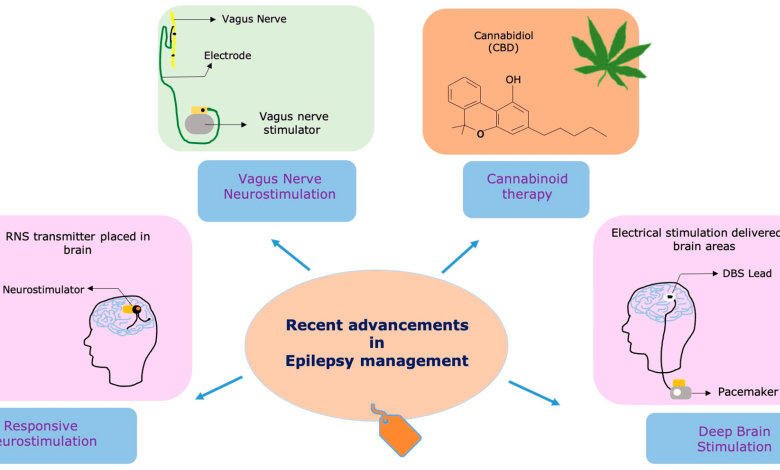Epilepsy Training and Nursing Revalidation: Essential Practices for Healthcare Excellence

In the healthcare industry, continuous education and professional development are crucial. Two key areas that exemplify this need are Epilepsy training and nursing revalidation. Epilepsy training equips healthcare providers with the necessary skills to manage and support individuals with epilepsy, while nursing revalidation ensures that nurses remain competent and up-to-date with the latest practices. This article delves into the importance of both, exploring how they contribute to improved patient care and professional growth.
What is Epilepsy?
Epilepsy is a neurological disorder characterized by recurrent, unprovoked seizures. These seizures are sudden bursts of electrical activity in the brain that can affect how a person feels or acts for a short time. Common symptoms include temporary confusion, staring spells, uncontrollable jerking movements of the arms and legs, and loss of consciousness or awareness. Understanding epilepsy is the first step towards effective management and care.
Why Epilepsy Training is Crucial
Epilepsy training is vital for healthcare providers for several reasons. First and foremost, it ensures that they are well-prepared to handle seizures safely and effectively. Proper training can significantly reduce the risk of injury during a seizure and improve patient outcomes. Additionally, trained healthcare providers can offer better psychological support, helping patients and their families cope with the challenges of living with epilepsy.
Components of Epilepsy Training
Epilepsy training typically covers several key areas:
- Understanding Seizures: Recognizing different types of seizures and their characteristics.
- First Aid for Seizures: Learning how to provide immediate care during and after a seizure to prevent injury.
- Medication Management: Understanding various anti-epileptic drugs and their side effects.
- Psychological Support: Offering emotional support and counseling to patients and their families.
Implementing Epilepsy Training in Healthcare Settings
Developing an effective epilepsy training program involves several steps:
- Steps to Develop a Training Program: Identify the training needs, set objectives, and design the curriculum.
- Training Delivery Methods: Use a mix of classroom instruction, hands-on practice, and e-learning.
- Evaluating Training Effectiveness: Assess the program’s impact through feedback and performance metrics.
Nursing Revalidation: An Overview
Nursing revalidation is a process that nurses must undergo to demonstrate that they remain fit to practice. Introduced by the Nursing and Midwifery Council (NMC) in the UK, revalidation is required every three years and involves fulfilling several requirements, including completing continuing professional development (CPD) hours, obtaining practice-related feedback, and maintaining a reflective account of practice.
Why Nursing Revalidation is Essential
Nursing revalidation is crucial for several reasons:
- Ensuring Professional Competence: It ensures that nurses maintain their skills and knowledge.
- Enhancing Patient Care: It promotes high standards of practice and patient safety.
- Professional Development: It encourages continuous learning and career advancement.
Steps for Successful Nursing Revalidation
To successfully complete Nursing revalidation, nurses must:
- Meeting the Requirements: Fulfill the CPD hours, practice hours, and other criteria set by the NMC.
- Gathering Evidence: Collect documentation of CPD activities, feedback, and reflective accounts.
- Submitting Your Revalidation Application: Complete the online application process on the NMC website.
Challenges in Nursing Revalidation
While revalidation is essential, it can present challenges such as:
- Common Obstacles: Time constraints, lack of access to CPD opportunities, and difficulty in gathering evidence.
- Solutions to Overcome Challenges: Time management strategies, seeking employer support, and using online resources for CPD.
The Intersection of Epilepsy Training and Nursing Revalidation
Epilepsy training can play a significant role in nursing revalidation. By participating in epilepsy training, nurses can fulfill their CPD requirements and enhance their competence in managing epilepsy, which is a critical area of patient care. Case studies show that nurses who undergo epilepsy training are better equipped to provide comprehensive care, leading to improved patient outcomes and job satisfaction.
Conclusion
In conclusion, epilepsy training and nursing revalidation are essential practices that contribute to healthcare excellence. Epilepsy training equips healthcare providers with the skills needed to manage seizures and support patients, while nursing revalidation ensures that nurses remain competent and up-to-date with current practices. By prioritizing both, healthcare professionals can provide high-quality care and continue their professional development.
